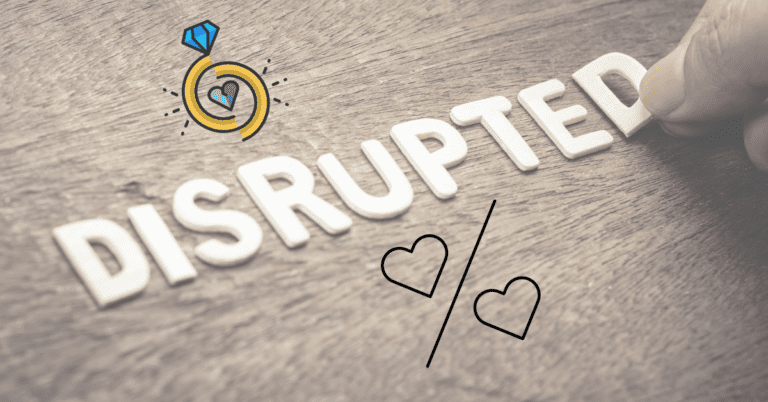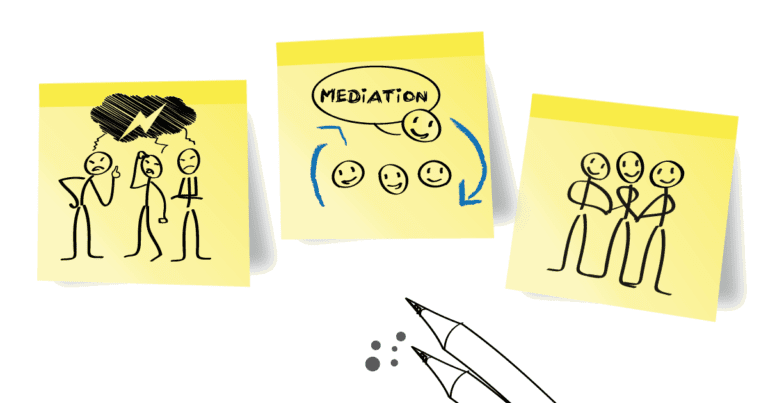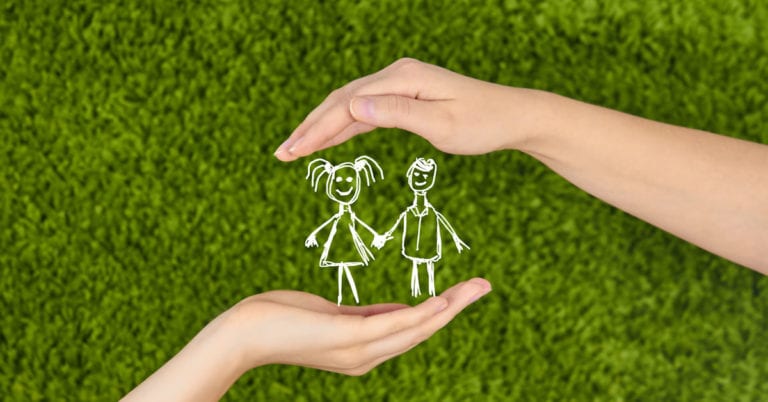Helping Children Adjust to Divorce

Be present with your kids. Throw the ball with them now. Take them to the beach today. These are things that children remember, and it is a wonderful strategy for reducing anxiety.” — Dr. Wayne Dyer
Effects of Divorce on Children
Going through a divorce can be a difficult time for anyone, but it can be especially tough on children. The divorce process can be incredibly complicated, leading to conflict between parents and resulting in a highly negative experience for children.
Children of divorce may experience a range of emotions, from confusion and sadness to anger and even guilt. Divorce rates continue to rise, and it’s important for families to understand the impact of divorce on children and ways they can help them through this tough time. In this article, we’ll explore the effects of divorce on children and offer tips on how to provide comfort and support.
Understanding Common Reactions
When parents decide to separate or divorce, children may experience a range of emotions in response to the news. It’s common for children to feel sadness and uncertainty about their future, as well as anger toward their parents. Kids may feel a sense of loss, particularly if one parent is less involved than before. At times, children may even blame themselves for the divorce. It’s important for parents to recognize these common reactions and to let their children express their true feelings about what’s happening.
Importance of a Consistent Routine
As families go through the process of separation and divorce, it’s important to maintain some sense of normalcy and routine for children. Regular times for meals, sleep, and other activities can provide a sense of stability and help children feel more secure during this time of transition. Good communication is key in maintaining consistency and keeping the child informed of how daily routines might change.
Supportive Relationships
Children will need supportive relationships to help them through this difficult time. This might include positive relationships with extended family members or family friends. Programs for children dealing with divorce, social workers, and mental health professionals can also help kids understand their feelings and provide support. Make sure to reach out to trusted professionals for guidance and support if you or your child need it during this time.
Healthy Family Dynamics
Divorce can result in intense conflicts between parents, leading to parental discord that can negatively impact children. To mitigate this, family therapists can help you devise strategies for communicating with your ex-partner and establishing positive co-parenting relationships after divorce. It’s important for parents to foster a healthy family dynamic, even if they’re no longer living together. Adult decisions must not affect the children and deciding together can contribute to a healthier family dynamic.
Positive Activities
Parents should help their children get involved in extracurricular activities that they enjoy as a way to help them through the stresses of divorce. Being a part of their favourite sports team, participating in music lessons, or simply spending time outside can be a great way to alleviate negative feelings and foster positive ones. This provides kids with much-needed structure, as well as a sense of accomplishment that can help build their self-esteem.
In conclusion, it’s important to remember that going through a divorce is never easy, especially for children. But by understanding the effects of divorce on children, providing stability and support, and fostering positive relationships, parents can help their kids adjust to the changes that come with parental separation.
Emotional Impact of Parental Separation
Parental separation is a difficult and emotional time for every family member involved, especially for the children. This can be a scary, confusing, and frustrating experience for young children, grade school children, and teenagers alike. It’s important for parents to recognize the emotional impact that parental separation can have on children and to provide support and comfort throughout this transition.
It’s common for children to experience emotional turmoil during and after parental separation. Young children may worry about not being loved anymore or blame themselves for the separation. Grade school children may feel guilty, become clingy, or act out in school. Teenagers may become angry about the situation and withdraw from their family and friends.
It’s essential for parents to keep an open dialogue with their children during this time, providing a safe space for them to express their feelings and concerns. Encourage them to talk to you or a trusted adult about how they’re feeling. It’s okay to reassure them that it’s not their fault and that both parents love them.
Parents may also consider getting professional help if needed. Mental health professionals can provide support and guidance for both children and parents during the separation process. There are also programs available for children dealing with divorce and social workers who can help kids understand their feelings.
It’s also important for parents to take steps to reduce the psychological effects of divorce on their children. This includes maintaining consistent routines and schedules, ensuring there are no major disruptions to their daily lives, and providing a safe and supportive home environment. Make sure they have a sense of stability and know what to expect in this new family dynamic.
In conclusion, parental separation can be a difficult and emotional time for all family members involved, particularly for children. With supportive parenting strategies, professional help, and a focus on reducing the psychological effects of divorce on children, parents can provide the necessary support and care for their children during and after the separation process. Remember, your children’s well-being is a top priority, and it’s important to show them love and support throughout this challenging time.
Developmental Changes in Family Structure and Dynamics
Divorce or separation is a difficult time for families, and it can bring about numerous changes in family structure and dynamics. It’s important to recognize that the effects of a parental separation or divorce extends beyond just the parents themselves but also impact the entire family system, especially the children.
Children may experience a wide range of emotions during this time, including feelings of loss, confusion, and sadness. They may also experience changes in their daily routines, as well as a shift in family roles. Adjusting to these changes can be challenging, especially for younger children who may struggle to understand why their family is changing. It’s important to provide children with a safe and supportive environment where they can share their feelings and emotions openly.
Parents may also encounter difficulties during this transition period, particularly in co-parenting and communication. They will need to find ways to work together to ensure consistency in parenting decisions, routines, and boundaries. They may also need to determine how to divide responsibilities of parenting duties, finances, and property.
To navigate these changes, communication is crucial. A family that is open, honest, and supportive can make the transition much easier for everyone involved. Setting up consistent routines and boundaries can also help children feel a sense of stability and security, allowing them to adjust to the changes over time.
Professional help is available through mental health professionals who can provide support and guidance throughout the adjustment process. There are various programs available that aim to help families navigate their way through parental divorce or separation. With support from mental health professionals and the right program, children and parents can successfully adapt to the changes and work together to create a healthy family structure and dynamic that supports their individual needs.
Conflict Between Parents and the Impact on Children
Divorce is a difficult time for families, and it’s not uncommon for parents to experience conflict during the process. Unfortunately, children are often caught in the middle of this conflict, which can have a significant impact on their emotional well-being. As a parent, it’s important to be mindful of how conflict affects your children and to take steps to mitigate its impact. In this article, we’ll explore the impact of conflict between parents on children and provide tips to help you and your co-parent minimize conflict and provide a supportive environment for your children during this challenging time.
Children may experience feelings of fear, anxiety, and guilt when they witness conflict between their parents. They may also become more irritable, withdrawn, or behave aggressively as a result of the stress caused by parental conflict. Additionally, prolonged exposure to conflict may even lead to physical health problems such as headaches or stomachaches. Children of high-conflict families are also at an increased risk of developing mental health problems, including depression, anxiety, and post-traumatic stress disorder.
It’s essential to minimize conflict as much as possible during and after the divorce process. You can do this by setting clear boundaries with your co-parent and avoiding discussions or arguments in their presence. Whenever possible, try to communicate in a calm and respectful tone. It’s also helpful to keep your children’s routines as consistent as possible to provide them with a sense of stability and security. Seeking help from a licensed mental health professional or a family therapist can also be beneficial for both you and your children.
While conflict between parents is common during divorce, it’s essential to focus on minimizing its impact on your children. By taking steps to reduce conflict and provide a supportive environment, you can help your children adjust to the changes and ensure their emotional well-being. Remember to communicate effectively with your co-parent and seek the help of professionals whenever necessary. Your children’s health and happiness should always come first.
High-Conflict Families and the Risk of Divorce
Divorce can be a difficult time for families, but it can be particularly challenging for those caught in high-conflict families. These families often experience intense and ongoing conflict that can have serious consequences for everyone involved. Not only are children in high-conflict families more likely to suffer emotional and behavioral disturbances, but they are also at a higher risk of experiencing divorce themselves as adults.
What does it mean to be in a high-conflict family? Generally, these families are characterized by frequent arguments, verbal abuse, contention, and unresolved conflict. Family members often feel stressed, anxious, and on edge, and communication is often fraught with tension and negativity.
For children, living in a high-conflict family can be especially challenging. When parents fight, children may feel like they are caught in the middle of the conflict. They may start to exhibit behavioral problems, such as acting out or withdrawing, and may struggle in school. Additionally, children in high-conflict families may experience low self-esteem, anxiety, depression, and other mental health problems.
Fortunately, there are strategies that can help high-conflict families navigate the challenges of divorce. Co-parenting classes, for example, can provide parents with the tools they need to communicate more effectively and minimize conflict. Mental health professionals, including family therapists and counselors, can also help families address underlying issues and work towards developing healthier dynamics. By participating in these programs, families can help mitigate the negative outcomes associated with high-conflict and divorce.
Ultimately, it’s important to remember that divorce can be a challenging time for families. However, by addressing issues like conflict and seeking support, it’s possible to reduce the negative impact of divorce on children’s emotional well-being and avoid the risk of divorce in the future.
Mental Health Professionals and Programs for Children Experiencing Divorce
Let’s take a closer look at how mental health professionals and programs can make a difference.
Mental health professionals, including family therapists and counselors, can provide critical support and guidance to children experiencing divorce. A therapist can offer a safe space for children to express their true feelings and emotions and help them develop healthy coping mechanisms. They can also work with families to address any underlying issues that may be contributing to the conflict and provide strategies for effective communication and conflict resolution. By collaborating with a mental health professional, children can gain a better understanding of their feelings and the divorce process, which can ultimately promote emotional healing.
Programs for Children Experiencing Divorce
There are several programs available to support children experiencing divorce. These programs are designed to provide a safe, supportive environment where children can connect with others who are going through a similar experience. Social workers, mental health professionals, and other trained staff members lead activities and discussions to help children understand that they are not alone. Additionally, these programs often provide therapeutic interventions to help children express their feelings and develop coping skills. By participating in such programs, children can feel supported, learn new skills for coping and help prevent negative outcomes associated with divorce.
Benefits of Working with a Mental Health Professional or Social Worker During Difficult Times
Going through a parental separation or divorce can be incredibly difficult for both parents and children alike. Emotions can be high, and it can be challenging to navigate all the changes that come with the end of a relationship. Fortunately, there are professionals available to help support families during this challenging time. Mental health professionals, such as therapists and social workers, can provide immense benefits to families experiencing divorce.
One of the most crucial benefits of working with these professionals is the support they can offer during this transition. Children may feel a sense of loss, abandonment, or confusion, and a therapist can provide a safe space in which they can express their emotions and feelings. These professionals can also offer guidance on how to cope with the changes they are experiencing. Children may also benefit from learning strategies for managing stress and anxiety that can arise during this time.
Working with mental health professionals and social workers can also help mitigate the potential mental health risks associated with divorce. Research has shown that children whose parents have separated or divorced are at a higher risk of developing emotional and behavioral problems. These problems can include depression, anxiety, and aggression. Working with professionals can help prevent or manage these issues by providing children with the tools they need to cope and heal.
Another critical benefit of working with mental health professionals is having access to available resources and programs. These professionals can recommend programs and resources tailored to meet the unique needs of each family and can connect families with other resources if necessary. They can offer guidance on how to talk to children about divorce and can provide strategies for effective communication and conflict resolution.
It’s essential to recognize that engaging with a mental health professional or social worker during a difficult time like divorce is not a one-time event. It’s vital to maintain regular check-ins and appointments to ensure ongoing support. These professionals can provide ongoing guidance and support, which is especially important during this transition period.
Programs for Children Adjusting to Parental Separation or Divorce
Divorce or parental separation is never easy on children. They may experience feelings of confusion, loss, and even guilt. Fortunately, there are many programs available to support children and families going through this difficult transition. Let’s take a look at some of the available programs that can help children adjust to parental separation or divorce.
Many mental health centers and community organizations offer support groups and counseling services specifically for children who are experiencing parental separation or divorce. These programs provide a safe and supportive environment where children can share their feelings and learn how to manage their emotions. Trained therapists can offer guidance on coping strategies and help children build healthy relationships with both parents.
In addition to counseling and support groups, there are also other types of programs available for children adjusting to divorce. After-school activities or summer camps can provide a fun and safe environment for children to interact with others in a similar situation. These programs offer opportunities for children to make new friends, build self-esteem, and learn new skills.
Family therapy and mediation can also be beneficial for families going through a divorce or separation. These programs offer a way for parents and children to work through conflicts and develop better communication skills. Family therapy can also help children understand that it’s okay to have different feelings about their parents’ divorce and help them develop coping mechanisms to handle these feelings.
In conclusion, there are many programs available for children adjusting to parental separation or divorce. These programs offer a variety of options, including counseling, support groups, after-school activities, summer camps, and family therapy. The goal of these programs is to create a supportive and safe environment where children can express their feelings, cope with the changes, and build positive relationships with both parents. Remember, seeking support is a positive step towards helping children adjust to the changes in their family structure.
Custodial Parent Responsibilities When Caring for a Child During the Divorce Process
Divorce can be a challenging time for both parents and children, but it can be especially difficult for the parent who is awarded custody of the child. Custodial parents are responsible for providing their children with the emotional and financial support they need to thrive during and after the divorce process. In this article, we will discuss the responsibilities custodial parents have when caring for a child during and after a divorce. By understanding these responsibilities, custodial parents can help their children adjust to the changes in their family structure and maintain positive relationships with both parents.
Maintaining Family Relationships Despite Change in Family Structure
Going through a separation or divorce is a difficult time for everyone, especially children who may find it very hard to adjust to the changes in their family structure. However, maintaining family relationships despite these changes is incredibly important for both the parents and the children involved.
Consistency is key when it comes to helping children adjust to the new normal. Regular times and a consistent routine can help make the transition easier for everyone involved. It’s also important to be flexible and find creative options for sharing time with the child so that both parents can continue to be involved in their lives.
While it’s important for children to have contact with both parents, sometimes parental conflict can make this difficult. It’s crucial to contain any conflict between the parents, as it can be very harmful to children to be exposed to intense conflicts between their parents.
Establishing a consistent routine and rules that both parents need to follow can help provide stability and structure for children during a time of chaos and uncertainty. It can also be beneficial to get children involved in taking responsibility for their actions and duties, as this can help them learn how to discipline themselves effectively.
Consistency in schedules and rules can make life less stressful for everyone involved. Knowing what to expect and what is expected of them can help children feel secure and reduce anxiety. It can also help parents work together more effectively, which can lead to more positive and supportive relationships.
In summary, it’s important to maintain family relationships despite changes in family structure due to separation or divorce. Establishing a consistent routine, being flexible with schedules, and containing parental conflict are essential in helping children adjust to the new normal. Providing structure and rules, getting children involved, and maintaining consistency can help make life less stressful for everyone involved.
Adapting to a New Family Dynamic After Parental Separation
Adapting to a new family dynamic after parental separation can be a daunting process for children. The transition from a two-parent household to one can be a significant disruption to their lives. It’s essential to help your child adjust to this change in a positive and supportive way.
The impact of divorce can be significant, and it’s important to be patient and understanding during the adjustment period. It’s crucial to monitor the interaction between children and parents to facilitate the new family dynamic. Encourage open communication and emphasize the importance of honesty. Children need to feel heard and understood during this challenging time, and being honest can foster trust between the child and parent.
Another way to facilitate the transition is to do new activities as a family. Finding new traditions can help create a sense of togetherness and excitement about the new family dynamic. It’s an excellent opportunity to explore new interests and engage in fun activities as a family.
The family dynamic after parental separation can also be an opportunity for growth and personal development. It’s a chance to create new rhythms and routines that fit the new family structure. Being intentional about the structure and rhythm of daily life can help children feel more secure and provide stability during a time of uncertainty.
In conclusion, adapting to a new family dynamic after a parental separation can be a challenging process. However, it’s essential to help your child adjust to this change in a positive and supportive way. Foster open communication, emphasize the importance of honesty, try new activities as a family, and be intentional about establishing new routines. With patience and understanding, you can help your child navigate this challenging time and adjust to a healthy and positive new family dynamic.
Conclusion
As the impact of divorce on children can be significant, it’s essential to support them during the adjustment period. Throughout this article, we’ve highlighted the importance of honesty, communication, and patience in this process.
Divorce can have long-term effects on children, including emotional and behavioral difficulties, a higher risk of mental health issues, and lower academic achievement. However, with the right support, children can still thrive and lead happy, healthy lives.
One critical factor in helping children adjust to divorce is parental communication. Parents need to keep an open dialogue with their children, encourage them to express their feelings, and validate their emotions. This approach can help children feel heard, understood, and supported.
Mental health support is also important during this difficult time. Mental health professionals can assist children in coping with their emotions and provide guidance to parents on the best strategies to help their children adapt.
Finally, there are several concrete strategies parents can adopt to help children adjust to the new family dynamic. These include maintaining a consistent routine, involving children in decision-making, encouraging the pursuit of extracurricular activities, and, most importantly, ensuring they feel loved and supported.
In summary, supporting children during parental divorce is crucial to their long-term wellbeing. By prioritizing open communication, mental health, and specific strategies that meet the child’s needs, parents can help children adjust to the new family dynamic, grow, and thrive.
Q: How can I help my child adjust to my divorce?
A: Be honest and clear about the situation, listen to their feelings, and provide support and stability.
Q: What are some common reactions children have to their parents’ divorce?
A: Children may feel sad, angry, guilty, or confused. They may also have changes in behavior or academic performance.
Q: Should I talk to my child about the reasons for the divorce?
A: It’s important to be honest with your child, but avoid blaming or bad-mouthing the other parent. Keep the focus on how the divorce will affect the family moving forward.
Q: How can I co-parent effectively with my ex-spouse?
A: Keep communication respectful and focused on the needs of the child. Create a consistent schedule and rules between households, and avoid using your child as a messenger.
Q: When should I seek professional help for my child?
A: If your child’s behavior or emotions significantly change after the divorce, or if they are struggling with depression or anxiety, consider seeking therapy or counseling.
Q: Can joint custody work for children after a divorce?
A: Yes, joint custody can work well if both parents are committed to co-parenting effectively and putting their child’s needs first.
Q: How can I help my child maintain relationships with both parents after a divorce?
A: Encourage and facilitate regular communication and visits with the other parent. Avoid speaking negatively about the other parent in front of your child.
Q: Is it normal for children to feel like they have to choose sides after a divorce?
A: Yes, it’s common for children to feel torn between their parents. It’s important to reassure them that they don’t have to choose sides and that both parents love them.






